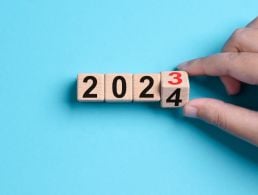AI will help HR leaders be more efficient, but they must not get caught up in the hype wave and forget about what really matters – the people.
Recently, we looked at how AI would impact employee experience in the more immediate term. Now, it’s time to explore how AI might affect the HR industry over the next few months.
Teri Ellison, chief HR officer for SHL, believes that “AI is going to revolutionise HR”. Of course, anything that happens in the HR industry usually tends to trickle down into employee experience, too.
According to Ellison, AI will be “introduced faster into HR than ever previously thought and we will soon all be using it to ease the hiring process and automate regular HR tasks.”
Redefinition of HR
AI will change the employee experience for the average HR worker; as Ellison puts it, “automated functions may even force HR employees to redefine their work”. She reckons this redefinition will apply to HR leaders too. They will have to pay close attention to how HR can positively or negatively impact their company strategy, meaning they will need to be hands-on when it comes to implementing AI-related changes.
Ellison’s SHL colleague, solution lead Lucy Beaumont, agrees. She warns that leaders should be “cautious” in the face of generative AI, which she describes as an “unstoppable tsunami of unprecedented change” that is hitting all organisations.
Be cautious when riding the ‘unstoppable tsunami’
“Generative AI will undoubtedly make HR and business processes more efficient, reduce repetitive tasks and lead to great leaps in predictive talent analytics,” Beaumont says, but caution in “reviewing and validating AI-based HR tech” is wise.
For one thing, “AI is largely unregulated and there are risks in its use. As organisations look to ride this wave, they will need to be savvy about understanding the technology available and validating its suitability.”
According to Geoff Webb, VP of solution strategy at Isolved, “The biggest challenge for small to midsize businesses will be overcoming the confusion that often comes with the implementation of AI.” He reckons small business leaders will find it “more difficult” than their larger counterparts to keep up with AI. Less resources, more pressure.
“In order to prevent their small business from falling behind, HR leaders must build a roadmap towards AI adoption. There’s a real appetite among HR leaders to harness AI, but they will be looking for guidance on how and where to start as we move into 2024.”
Ensuring that HR workers have the necessary skills to navigate these AI-related changes will be crucial. They can also use the skills they should naturally possess as people working in HR – soft skills such as communication, problem-solving, critical thinking and so on. These will make or break AI adoption success rates over the coming months.
Like Beaumont and Ellison, Webb thinks 2024 will be a defining year for AI and HR. “In 2024, AI will shift from a topic of conjecture in the C-suite to an integral part of day-to-day operations of HR,” he predicts.
It’s worth noting that a lot of the people we heard from for this piece work for companies in the HR tech space. SHL’s software helps employers leverage data to make decisions around their employees, as do Greenhouse Software and Isolved. It is in their interest to predict that AI will be meteoric in its impact on HR processes, but the truth might be a little bit less explosive and exciting.
AI will simply be a co-pilot
Greenhouse’s Colm O’Cuinneain says he sees AI “as a co-pilot, not an auto-pilot”. He believes its practical level of usefulness will be proven when it comes to things like analytics.
“Data analytics will play an increasingly significant role in shaping DEI strategies in 2024, with companies leveraging data to track and measure diversity metrics, identify areas for improvement and make data-informed decisions. By using data-driven insights, organisations can create targeted interventions and assess the effectiveness of their DEI initiatives.”
However, like the others quoted in this piece, O’Cuinneain recommends caution. AI can be a double-edged sword, after all.
Beware of the bark of regulatory watchdogs
“Tech companies need to be thoughtful to ensure AI is used ethically where AI can assist, but not replace, hiring decisions made by human beings.”
While in the past AI has been associated with perpetuating existing hiring biases, O’Cuinneain says that if it is used correctly and in a considered way, the tech can “mitigate biases in hiring, performance evaluations and other HR practices”.
One last piece of advice HR leaders would do well to take in for the coming year is to consider how their organisations adhere to AI regulations. O’Cuinneain points out that AI hiring regulations are continuing to take shape, particularly in the EU. “Companies will face the imperative to elucidate AI-driven hiring decisions to managers, candidates and legislative bodies. Establishing guiding principles on AI’s impact on people practices will become paramount, laying the foundation for navigating the evolving landscape of fair hiring.”
10 things you need to know direct to your inbox every weekday. Sign up for the Daily Brief, Silicon Republic’s digest of essential sci-tech news.












